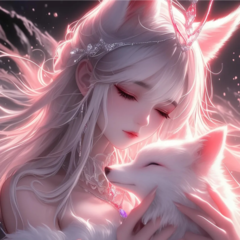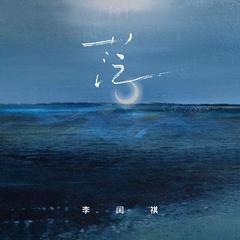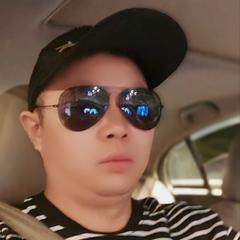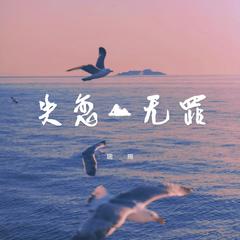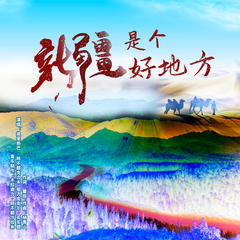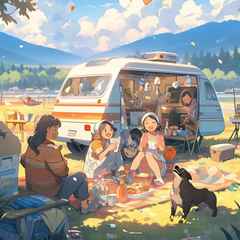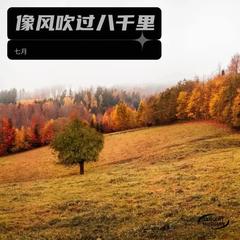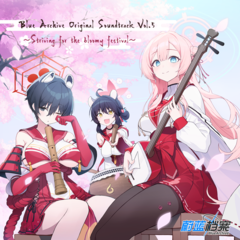Neil Finn
小简介全名Neil Mullane Finn的Neil Finn在1958年5月27日出生在新西兰的Te Awamutu,又是一个天生的音乐家,又是从小就为亲戚朋友开始了自己的表演生涯,同他的哥哥Tim一起(他们也合作出过专辑)。不久他开始学习钢琴,是为了弹奏他最喜欢的Beatles的旋律,逐渐的,他也开始创作自己的歌曲,最初的那些作品里有一首歌是为一首诗谱曲,收录在了Donovan的一张专辑里。 70年代初,他潜心学习一些著名的音乐人比如Elton John,Neil Young,David Bowie还有Cat Stevens,当他偶尔在哥哥的乐队Split Enz里客串的时候,这个乐队成为澳大利亚一股音乐势力,Neil在这里不单是合作演出,还精心制作自己的原创作品——挑选封面,演奏多种乐器等。1976年时,他组建自己的小团体After Hours,其他成员有词手/鼓手Mark Hough 和吉他手Geoff Chunn。但乐队并不长久,很快就由于种种原因解散了,后来Neil的哥哥Tim让他到Split Enz里担任吉他手,虽然他从没弹过吉他,但他还是在他19岁生日前加入乐队成为主音吉他。 Neil在SE的幕后做了两年,参与完成1977年Dizrhythmia和1978年Frenzy两张专辑,乐队的成功一开始让他们尝到一种平缓,而这种平缓还是没能让乐队从晦涩中走出来,于是这种平缓过后也预示着乐队即将走到终点。不过他们还是坚持到了1985年才解散,这时Neil才有机会组建自己的乐队——Crowded House的雏形,之后的10年CH取得了SE没有的成功:评论的喝彩,商业的成功,甚至在美国发行了单曲Don't Dream It's Over。于是在1996年,伴随着长期的成功和Finn兄弟偶尔的合作,Neil决定解散乐队,发展个人事业。 by Chris WoodstraNeil Finn has consistently proven his knack for crafting high-quality songs that combine irresistible melodies with meticulous lyrical detail, from his beginnings as the precocious junior member of Split Enz, through his leadership of Crowded House, and, finally, in his distinguished solo career. He has also earned considerable international commercial success, respect from his peers, praise from critics, and a devoted fan base that hangs on his every release.Born Neil Mullane Finn, on May 27, 1958, in Te Awamutu, New Zealand, Finn cut his musical teeth as a child by performing for family friends, harmonizing with elder brother Tim. Neil took to piano early on, learning his favorite Beatles tunes and eventually writing his own songs, the first of which was putting music to a poem enclosed in a Donovan album. In the early 70s, Finn intently studied emerging singer/songwriters like Elton John, Neil Young, David Bowie, and Cat Stevens, while watching his brother Tims band, Split Enz, become a force in the Australian music scene. Neil secured a few supporting slots for the Enz as a solo act, mixing his own originals with some well-chosen covers, accompanying himself on piano, guitar, and mandolin. By 1976, hed formed his own combo, the After Hours, with lyricist/drummer Mark Hough and guitarist Geoff Chunn. Hough departed shortly thereafter, and Alan Brown was recruited for bass duties. The group showed a great deal of promise, but came to a relatively quick end when Phil Judd left Split Enz and brother Tim offered the slot to Neil. Just before his 19th birthday, even though hed never played electric guitar before, Neil joined Split Enz as lead guitarist.Neil stayed in the background for the first two albums of his membership — 1977s Dizrhythmia and 1978s Frenzy — but emerged with the infectious I Got You for True Colours. The single was an immediate hit, saving the band from obscurity and, most likely, from imminent breakup. Split Enz enjoyed moderate international success for the next several years until disbanding in 1985. Neil formed an early version of Crowded House the same year, under a variety of names like the Mullanes and the Largest Living Things, with drummer Paul Hester and bassist Nick Seymour (another guitarist, Craig Hooper, was also in the earliest incarnation of the band). Over the next ten years, the combo eclipsed the success of Split Enz, finding both critical acclaim and massive commercial success internationally, including a number two single in the U.S., Dont Dream Its Over. In 1996, at the height of their success, following a Finn Brothers side project, Neil decided to dissolve the band in favor of a solo career.He spent most of 1997 writing music and painting in his New Zealand home studio. In 1998, he released his first solo album, the critically acclaimed Try Whistling This. That same year, he contributed a cover of I Can See Clearly Now to the animated feature Antz and, in mid-1999, he released the charity single, Can You Hear Us?, a tribute to New Zealands rugby team the All Blacks. He rounded out 1999 by mining the Crowded House vaults for a rarities release, Afterglow, and by participating in a Split Enz reunion/millennium concert in New Zealand. Finn wrapped up work on his second solo album in 2000. One Nil was released in March 2001. A live album, 7 Worlds Collide, was issued in February 2002 and a reworked version of One Nil (titled One All) was issued in the U.S. in May 2002. A second Finn Brothers album followed in 2004. Finn reactivated Crowded House in 2007, releasing Time on Earth.

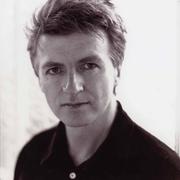
 Song of the Lonely Mountain(Extended Version) - Neil Finn
Song of the Lonely Mountain(Extended Version) - Neil Finn


